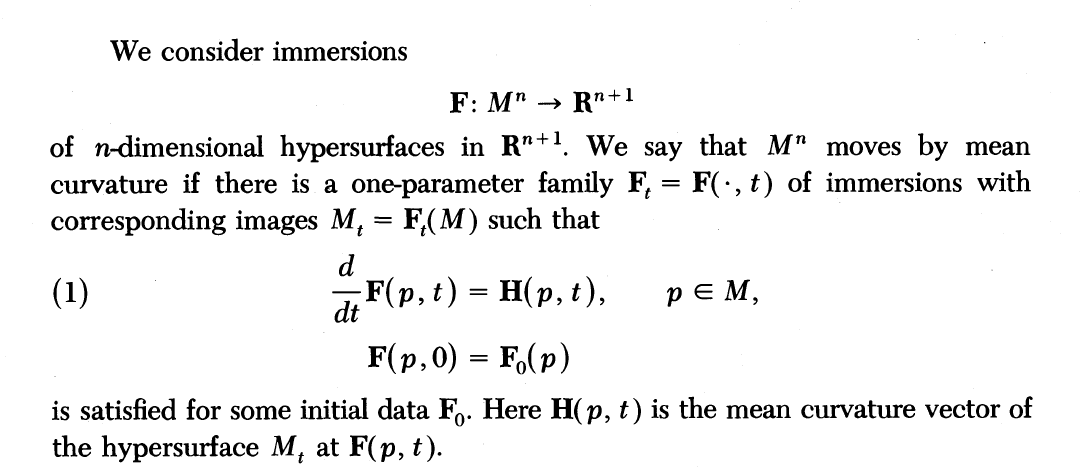It is known that mean curvature flow (MCF) can be used to smoothen out Lipschitz initial data. See Ecker and Huisken, Mean curvature evolution of entire graphsm Ann. Math. (2) 130 (1989), No. 3, 453-471
Can MCF be defined if the initial data is weaker than Lipschitz, say, Holder?
Just for convenience, here I quote the definition of MCF directly from Ecker-Huisken's paper.

